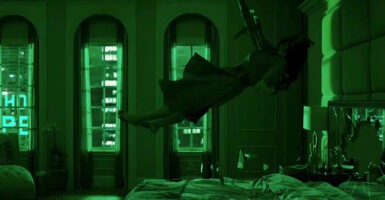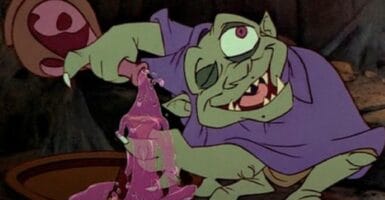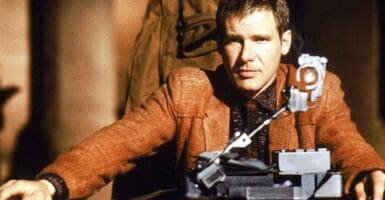Star Trek’s 10 Most Controversial Moments In Franchise History
By Rick Gonzales | Published
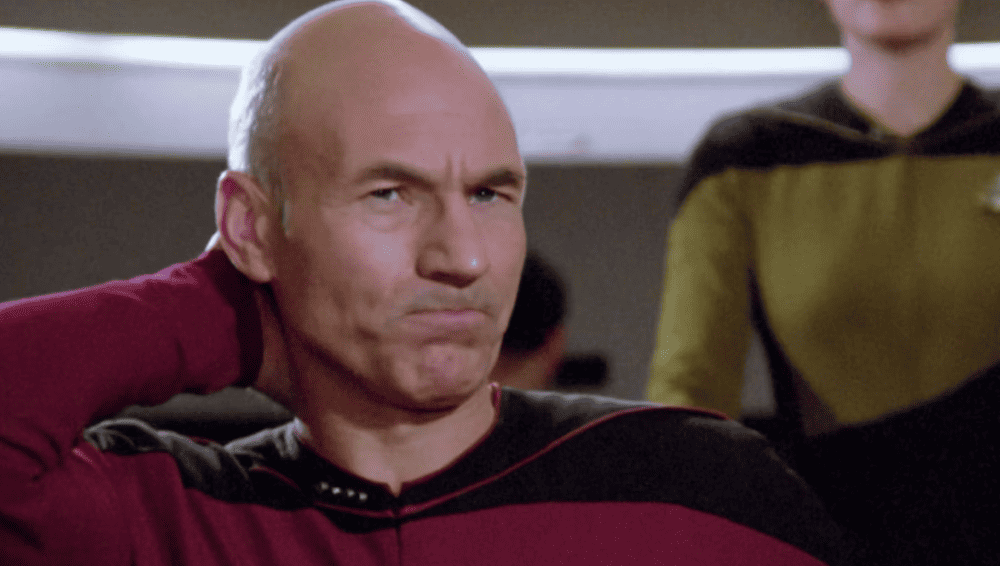
Star Trek’s 10 Most Controversial Moments
Ever since Star Trek: The Original Series premiered in 1966, there have been a number of different iterations in the Star Trek franchise, most recently Star Trek: Strange New Worlds. Along with some great TV viewing, the franchise has also seen numerous fun (mostly) Star Trek adventures shooting across the big screen at warp speed. One thing that the franchise has held true to form, no matter if they are on the big or small screen, is that they will never shy away from controversy.
Some of the best writing on film and television has taken place within the Star Trek franchise, consisting of 12 television series and 13 feature films. Throughout most of them, controversy has reared its ever-thoughtful head on occasion. So, with that in mind, let’s take a look at 10 of the most controversial moments in Star Trek’s franchise history.
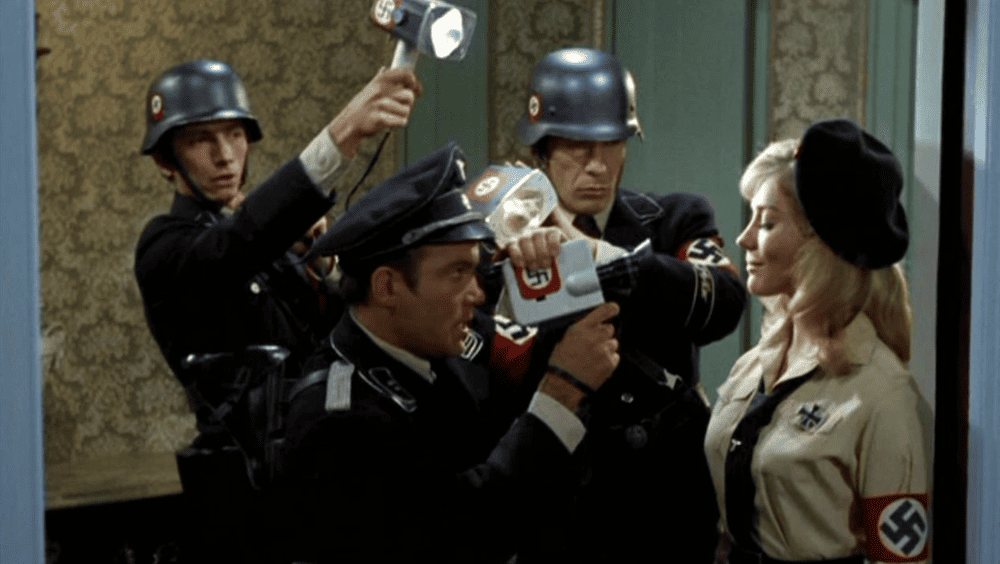
10. Depiction of The Third Reich in "Patterns of Force" - Star Trek: The Original Series
We go way back to The Original Series to find our first Star Trek controversial episode. “Patterns of Force” aired during the second season of The Original Series. It had Captain Kirk (William Shatner) and Spock (Leonard Nimoy) beam down to a planet that resembled Germany at the height of The Third Reich down to its Nazi uniforms and swastikas.
This episode went all in on its depiction of Nazi Germany including Nazi salutes, the Iron Cross, and even talk of “the Final Solution.” So troubling was this particular episode, it was banned from German television for nearly 30 years. We can’t blame them.
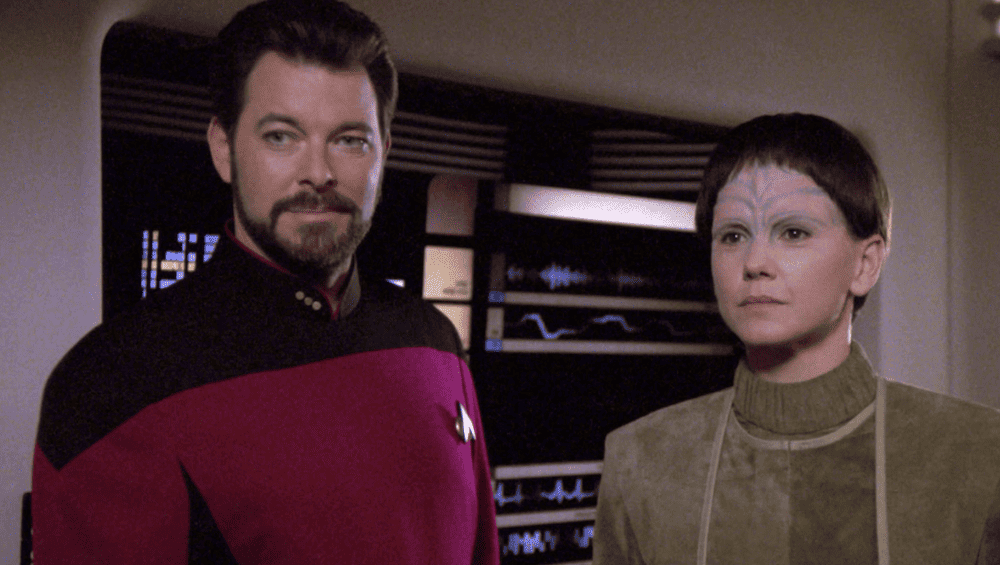
9. Gender identity and sexual orientation in "The Outcast" - Star Trek: The Next Generation
This Star Trek: The Next Generation was well before its time and could be quite topical in today’s landscape. The episode, titled “The Outcast,” dealt with the crew coming in contact with a new race called J’naii, a genderless species. Riker (Jonathan Frakes) meets Soren, a J’naii, and the two hit it off fairly quickly.
As their friendship continues to develop, Soren shares with Riker that she has considered herself to be a female since she was young, a thought that never should have left her lips. Her government finds out and forces Soren to undergo therapy so her feelings of being a woman will be wiped away, thus leaving her once again genderless.
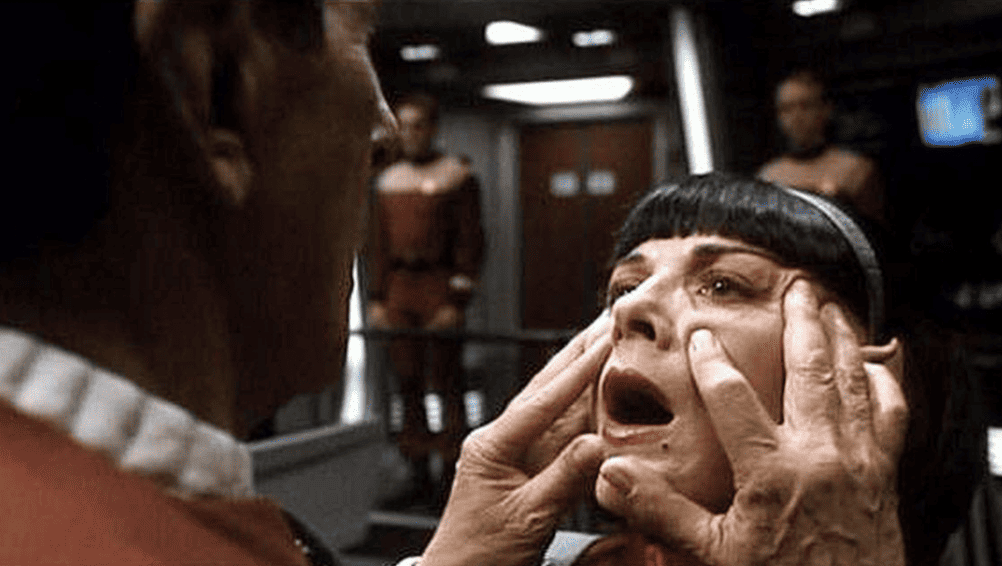
8. Terrorism and the ethics of war - Star Trek VI: The Undiscovered Country.
The idea behind the sixth feature film in the Star Trek franchise (Star Trek VI: The Undiscovered Country) came from Spock (Leonard Nimoy) himself when he pondered what things would look like if “the [Berlin] Wall came down in space?”
The film, as a whole, is one of the better features from the Original Crew (nothing can top the Wrath of Khan, though) and while controversy surrounded Captain Kirk’s angry racism he continued to carry towards the Klingons, it was one scene in particular that truly pushed the film into controversial territory.
This happened between the usually stoic Spock and his protégé, Lt. Valeris (Kim Cattrall). When it is discovered that Lt. Valeris is part of the larger conspiracy, Spock goes into action, performing a mind meld on her, trying to get the names of the other conspirators. Lt. Valeris screams in pain as Spock tries to rip names from her, names she ultimately does not know.
But the assault was there, it was hard to watch, and very controversial, especially coming from Spock.
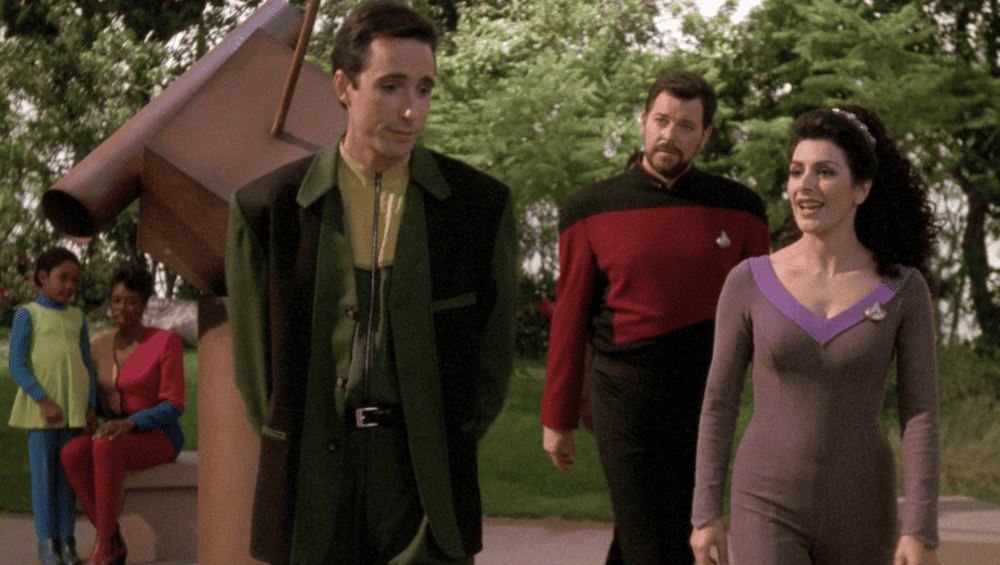
7. Eugenics and genetic engineering in "The Masterpiece Society"- Star Trek: The Next Generation And Star Trek II: The Wrath of Khan
As we have already seen, Star Trek has never had an issue tackling a sensitive subject. In this case of genetic engineering and eugenics, both the Original crew and those from The Next Generation took their own shot at it.
For the Original crew, this came in the best film in the franchise, Star Trek II: The Wrath of Khan. In the film, Khan, played wonderfully by Ricardo Montalbán, was the result of genetic engineering that made him superhuman in physical strength and intellect, opening the door for the controversy surrounding this type of engineering.
In “The Masterpiece Society” episode, genetic engineering is front and center as the Enterprise arrives to save inhabitants of a planet that appears will be destroyed by fragments of a disintegrated Neutron star. Upon their arrival, they find out that the colony was built 200 years ago and used genetic engineering and selective breeding to create the perfect society.
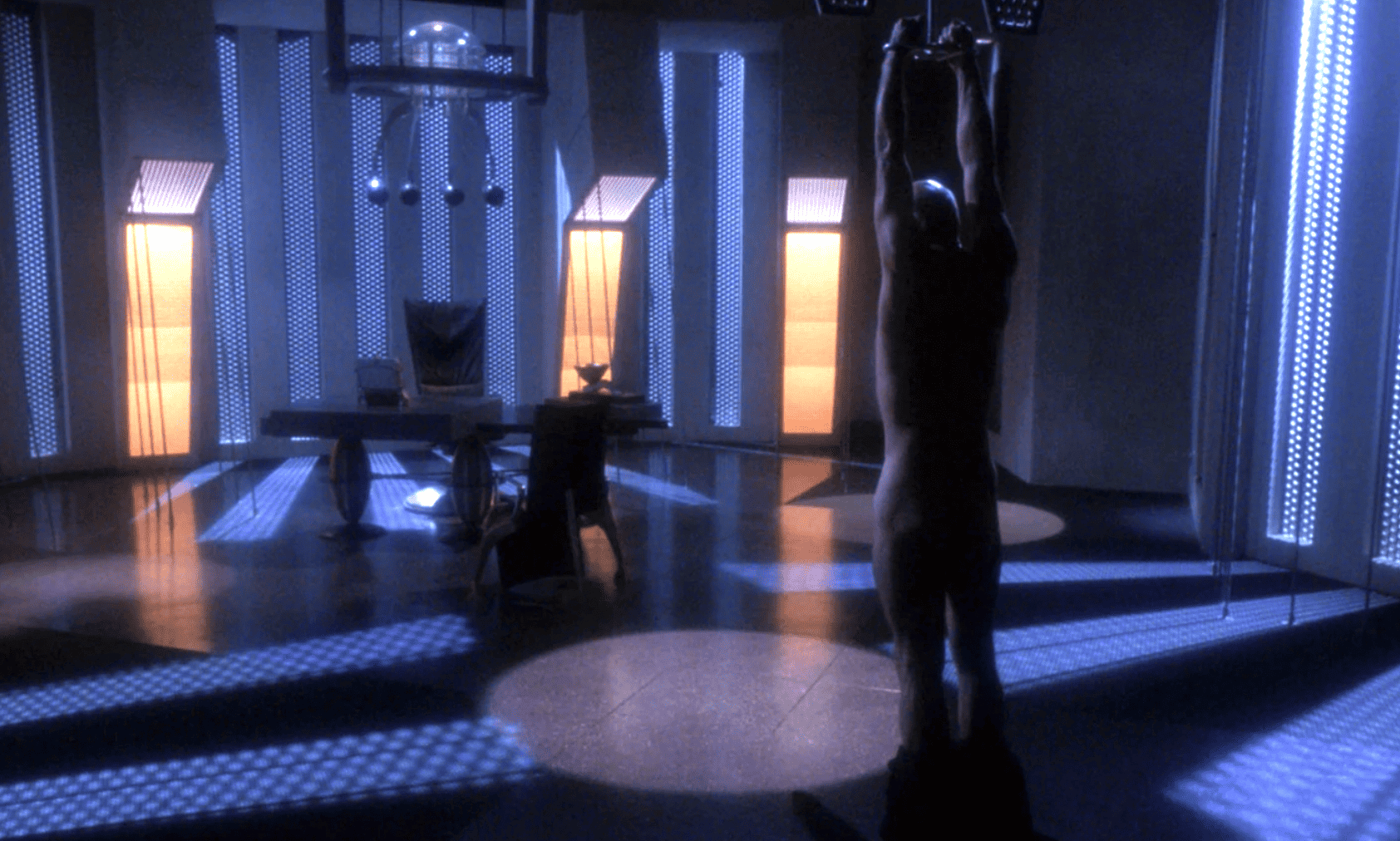
6. Torture and brainwashing in "Chain of Command" - Star Trek: The Next Generation.
“Chain of Command” was a two-part episode during the sixth season of Star Trek: The Next Generation. The first part had Jean-Luc Picard (Patrick Stewart) relieved of his duties as Captain only to be reassigned to lead a covert mission to find and destroy a Cardassian biological weapons plant.
Controversy arrived in Part 2 of the episode when Picard ends up being caught and tortured for information. These torture methods included sensory bombardment, sensory deprivation, stress positions, forced nakedness, starvation, dehydration, and physical pain. One last brutal technique used was Picard being shown four lights but was told he had to answer there were five. Each time Picard didn’t, he was subjected to intense physical pain.
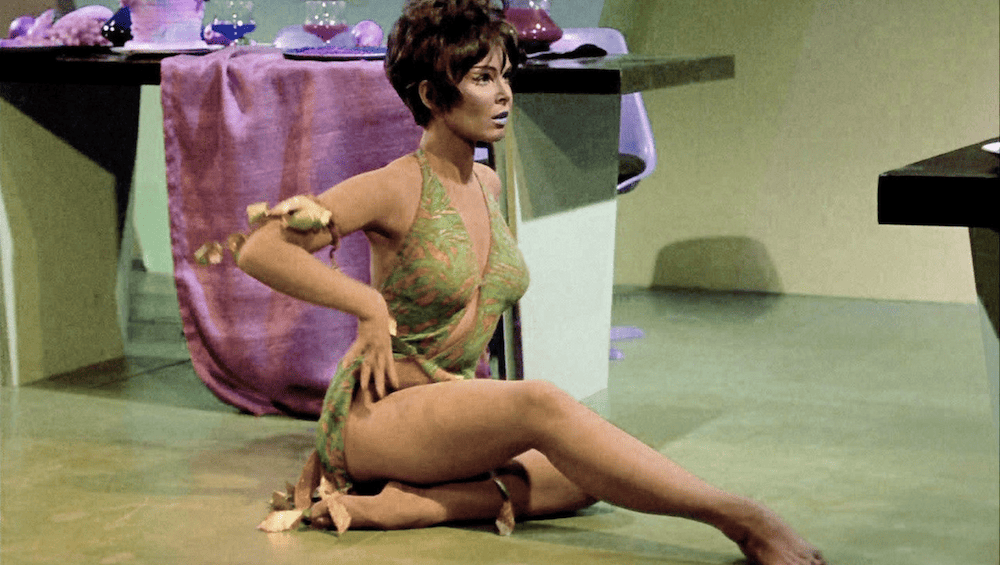
5. Mental illness and electroconvulsive therapy in "Whom Gods Destroy" - Star Trek: The Original Series.
There were two bits of controversy surrounding the 14th episode of season 3 of Star Trek: The Original Series. The episode touched on mental illness and how it could be corrected with some electroshock therapy. Kirk is the recipient of this form of torture, which didn’t sit well with fans.
The second piece of controversy came when one of the captives, Marta, attempts to first seduce Kirk by performing a risqué dance, then kill him. This episode was so troubling in the UK that they chose not to air it and it took 15 years before it would hit the small screen in the UK.

4.Rape and sexual assault in "Violations" - Star Trek: The Next Generation.
Star Trek: The Next Generation took a controversial look at rape and sexual assault in the fifth season with the episode titled “Violations.” Here, though, the assault and rape take place in the mind and not physically.
The episode has the crew of the Enterprise working in a delegation with Ullians, telepathic historians that use their gift to retrieve memories long forgotten. It has always been used for good until the Ullian leader’s son decides to use it in other, intrusive and troubling ways. Without permission, he enters the minds of Deanna Troi, Dr. Beverly Crusher, and Riker, and after fulfilling his needs, all three lapse into a coma.
The controversy surrounding this episode is about permission and another forcing themselves onto and into another person without consent.
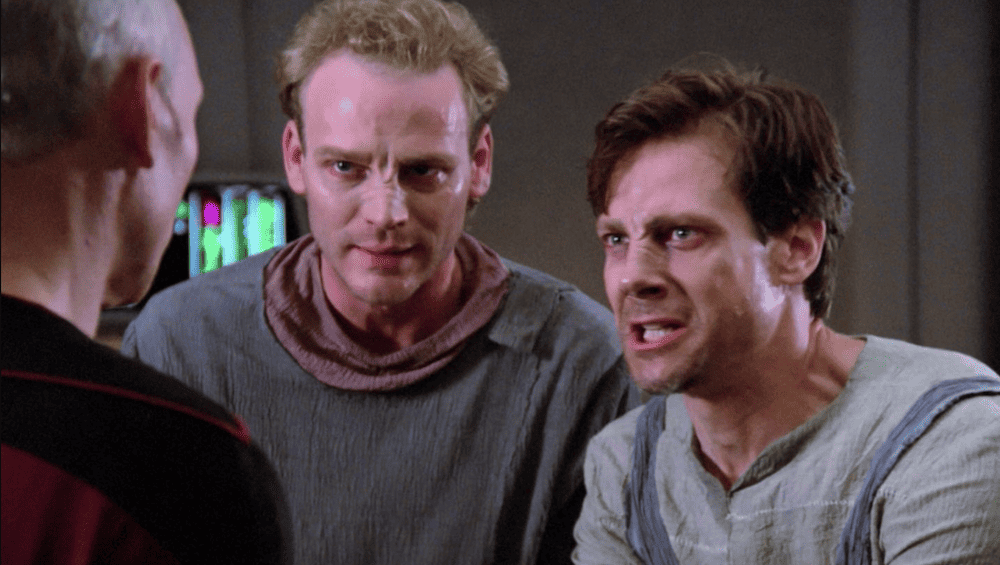
3. Drug addiction and withdrawal in "Symbiosis" - Star Trek: The Next Generation.
As you can see, Star Trek: The Next Generation had little problem covering many topical issues during its 7-season run, and the episode, “Symbiosis,” is one further example. This episode aired as the 22nd out of 26 in the first season.
While the intention of the episode was good – “just say no to drugs” – the handling of the material left many up in arms, including the cast. The episode was written by Maurice Hurley, a veteran writer who had recently completed work on Miami Vice. What really set off the cast was the “just say no” speech given by Tasha Yar (Denise Crosby) to Wesley Crusher (Wil Wheaton). Hurley took full responsibility for the fallout.
“I take the blame for that,” Hurley said. “I jammed that in over everyone’s objections. They were screaming on the set, the actors were screaming, they were puking, they were yelling, ‘We can’t do this.’ I said, ‘No, there are kids out there. If we’re going to make the message, let’s make the message.’ If it offends the adults or bothers some kids, then, by God, we’re going to do it.”
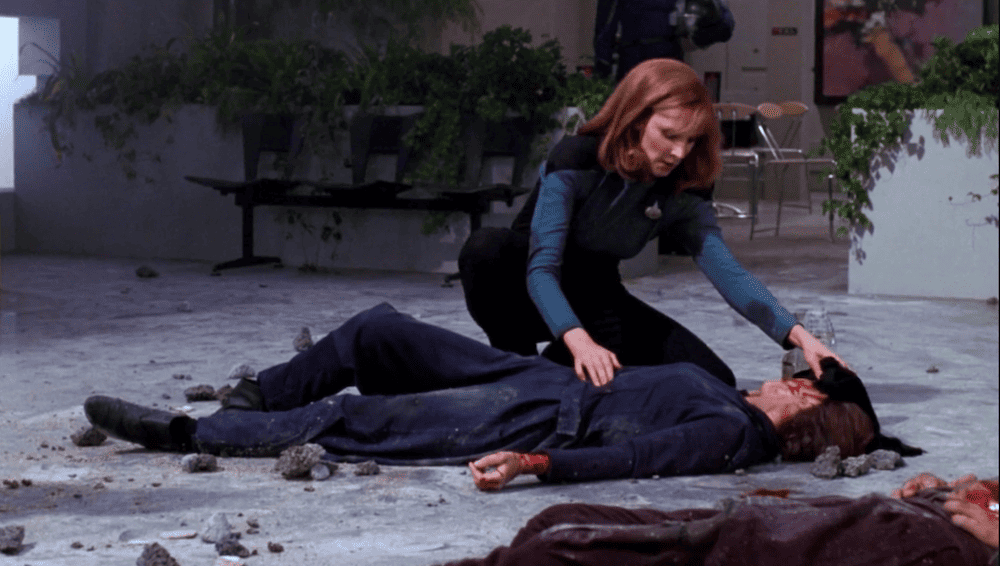
2. Terrorism and suicide bombing in "The High Ground" - Star Trek: The Next Generation.
For the most part, the entire episode of “The High Ground” was handled well, although it revolved around Dr. Beverly Crusher (Gates McFadden) being abducted by terrorists. But there was that one specific moment when things finally went off the rails. It happened when Data (Brent Spiner) made a seemingly innocuous statement that the “Irish Unification of 2024” was helped along by terrorism.
Fans in the UK were miffed. There was still plenty of violence taking place in Ireland, so the timing of that one line was ill-conceived. This line became so controversial in the UK that the episode was banned. It took until 2007 for the episode to finally get playtime in the UK and Ireland, 17 years after the episode was released in the U.S.
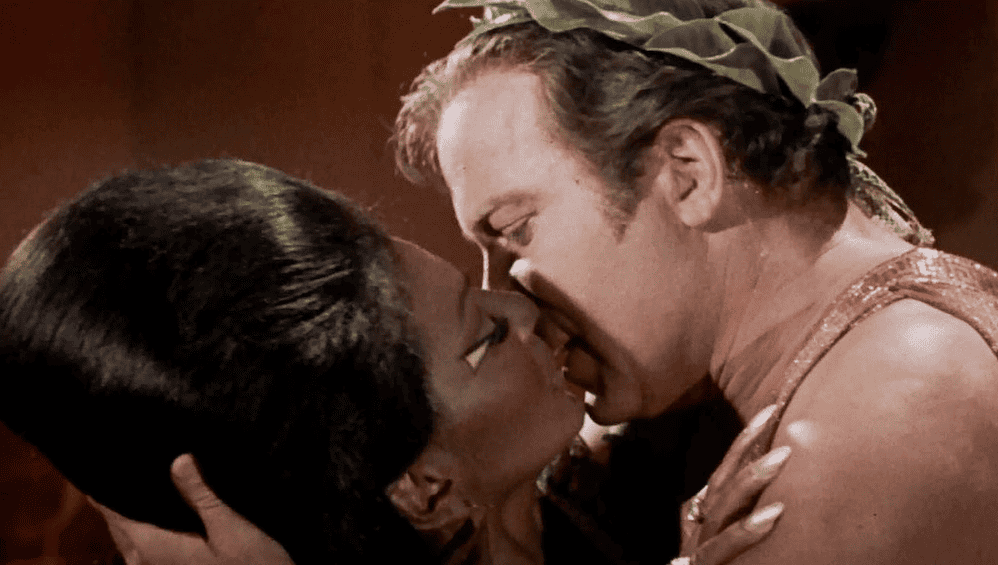
1. The interracial kiss between Captain Kirk and Lieutenant Uhura in "Plato's Stepchildren" - Star Trek: The Original Series.
It was seen as the very first kiss on American television between a white man and a black woman. It happened in the 1968 episode, “Plato’s Stepchildren,” a bizarre episode where aliens worship the Greek God Plato and force the crew of the Enterprise to dance and sing, and eventually kiss.
It comes when the revelry is in high gear and one of the aliens forces Kirk (William Shatner) and Uhura (Nichelle Nichols) to embrace. They try to resist, but the embrace is inevitable, as is when Kirk tilts back Uhura’s head and lays one on her. I definitely didn’t have any romance behind it, but the simple fact that a Black woman and a white man were kissing on television back in 1968 was immediately controversial.









